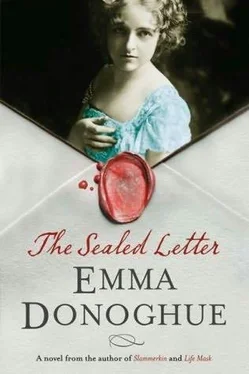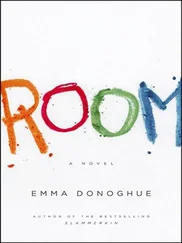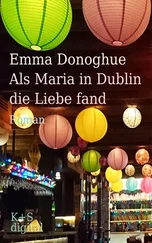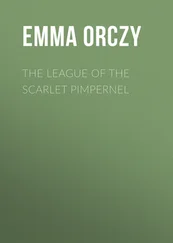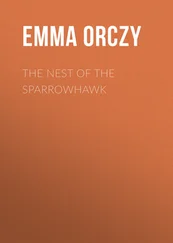And now? she wonders, as she stands fingering the seashell choker. Helen sounded no worse than rueful today on Farringdon Street, when she mentioned Harry being buried in paperwork. Perhaps seven years have dulled her weapons, and his. Have the spouses somehow muddled through their old antipathies, Fido wonders, and reached an entente cordiale?
On the verge of their departure, in '57, Fido imagined herself writing twice a week, and going out to Malta for long visits. She was still wearing the choker then; she wore it till long after the letters stopped arriving. She wasn't to know that the friendship had slipped through her fingers, by what she's only learned today-it still chokes her to realize it-was the most trivial of happenstance. The inefficiency of the Maltese post!
Fido rolls up the velvet necklace and puts it back in the drawer. It probably wouldn't go around her throat anymore. She's solider, these days, not just in flesh but also in mind. Being stranded seven years ago, left to her own devices, did her good. It doesn't matter why; it doesn't matter that it was all a mistake. Fido had to grow up and make a life for herself: a full one, useful and satisfying, an important life (if she says so herself).
But to feel the grey ashes of friendship reddening to life again-
Enough. At this rate she won't sleep tonight.
Fido puts the tray outside her door for Johnson. She returns Friendless Girls to the pile of pamphlets on the bedside cabinet, and unlocks the lower drawer in which she keeps her fiction. Not that she has anything indecent; the spines all bear the Pegasus motif of Mudie's Library. Ridiculous things are said of Miss Braddon's novels, or Mr. Collins's-that they harrow the nervous system and drive readers to drink or insanity. Fido finds them enlivening, in the small doses she allows herself; as with any stimulus, it's a matter of moderate use. Appalling secrets, deaths, bigamies, doppelgangers: there's nothing like a taste of the sensational at the end of a hard day. She takes out The Notting Hill Mystery now, and finds her place.
Two pages on, she finds herself staring into space. This is ridiculous. For seven years, she's been getting along perfectly well on her own. But we met again on Farringdon Street, by purest chance. In the multitudinous city, Helen laid her hand on mine.
At any rate, these are pointless speculations, because it's too late to turn back. There's no one-has never been anyone-whose company Fido relishes as much as Helen Codrington's. Despite the woman's excesses and flaws; despite all the complications of their shared history. The grave is open and the dead friendship walks.
***
The following afternoon, Fido should be supervising the printing of the Friend of the People, one of the contracts on which she most relies. But she can't settle. Finally she leaves her most reliable clicker, young Mr. Head, in charge. She sends a boy to hail a growler from the stand and tells the driver, "Eccleston Square, if you please." That's one of the paradoxes of being a lady, it strikes her: it's more respectable for Fido to rattle along in one corner of this four-wheeled growler, which could bear a whole family, than if she took a low-slung hansom meant for two.
Outside the house on Eccleston Square, an aproned man is scattering fresh gravel and watering it to keep down the dust. When Fido steps down and looks up at the green railings, it's all so much the same as the day she packed her cases to leave that she's gripped by a subtle nausea, and almost wishes she hadn't come. So many things have come rushing back to her in the single day and night since she's found Helen again: they spill out of her memory like coins from a shaken box.
Mrs. Nichols, the sour-faced housekeeper, greets her by name as if it were only yesterday, and has a maid show her into the dim drawing-room. Apart from the dark panelling, everything looks brand new. Muslin curtains shift above the plant-crammed glass cases built into the windows; the grate is filled with a paper peacock. The wallpaper's green and pink, embossed with a creeping vine pattern. The room seems to Fido to hold three times as much furniture as in the old days, and every high-shelved whatnot or occasional table, every chair leg or handle, is bronzed or scalloped or carved with flowers and animals. She counts ormolu vases, photographs of unfamiliar garden parties, Bengal shawls, gilt-eyed wally dogs. Jardinières cascading with silk ferns, domes of polished wax fruit, a glass globe of silver fish, as well as cages of skylarks and parrots and cockatoos (some stuffed, one-startling her with a shriek-very much alive). "It's all different," she says, spinning round as Helen glides in, wearing a lilac wrapper.
Her friend grins as she unlocks one of the dozens of drawers on a marquetried chiffonier and produces a tea caddy and sugar basin. "I've only just begun. It'll take me at least a year to prettify this old barracks of a house, but I had to tackle the drawing-room the moment we unpacked. I've been roaming Whiteley's and Swan and Edgar's like a madwoman. Look at this cunning little iron casket, can you guess what it is?"
Fido opens it, and a glass inkstand pops out.
"And these are real leaves, electro-plated-whatever that means," says Helen with a giggle. "I'd have everything up-to-date if Harry would only loosen the purse-strings," she adds under her breath.
Oh dear, thinks Fido, recognizing an old theme.
The two of them settle against the plump crimson cushions as Mrs. Nichols brings in the tea tray. "I've been playing forfeits upstairs with the girls," Helen explains.
And here they come, in their white pinafores. Nan and Nell both have their mother's copper hair, brushed back smoothly under black bands, and their father's height, which makes them stand a little awkwardly on the scarlet and emerald Brussels carpet.
"Darlingissimi, I wonder do you remember Miss Faithfull, who used to live with us before we went to Malta?"
"I believe so," says one of the girls uncertainly.
"But we always called you Aunt Fido," says the other.
"Indeed you did," Fido tells the child with a surge of warmth, "and I'd be honoured if you'd do so again."
"Nan's a stupendous pianist these days," says Helen, beckoning to the older girl and sliding her arm round the narrow waist as if she's guessed that Fido has no idea which is which, "and very sensitive with a watercolour brush. As for Nell-"
"I'm much less accomplished," volunteers the younger girl.
"-but far more moral," adds her sister.
Fido laughs. "You share your sentences, the way you used to share your toys."
"Oh, they share everything, even their faults," Helen tells her. "They're a perfect conspiracy."
Fido scrabbles for a memory. "You both had a craze for spinning tops."
"We have a collection of thirty-four-" Nell confides.
"-but we don't play with them anymore, it's beneath our dignity," says Nan.
This makes their mother yelp with amusement. "These days it's all stereoscope, stereoscope," she says, gesturing to a mahogany and brass device on a tiny table. "Every time I turn around I find them attached to the contraption, which can't be good for their eyes."
"But it's marvellous, Mama. Things seem so very real."
"It's so much better than the old magic lantern at the Allens'."
"When I look at the Stereo View from a Precipice, I feel as though I'm going to topple in," adds Nan.
"Topple off to the schoolroom now, if you please, so Mama can talk to her friend."
Nan leans into the visitor's ear on her way out. "Are you going to live upstairs again, Aunt Fido?"
She jumps. "No, my dear," she says, too heartily, "but we'll see a great deal of each other, I hope."
Читать дальше
